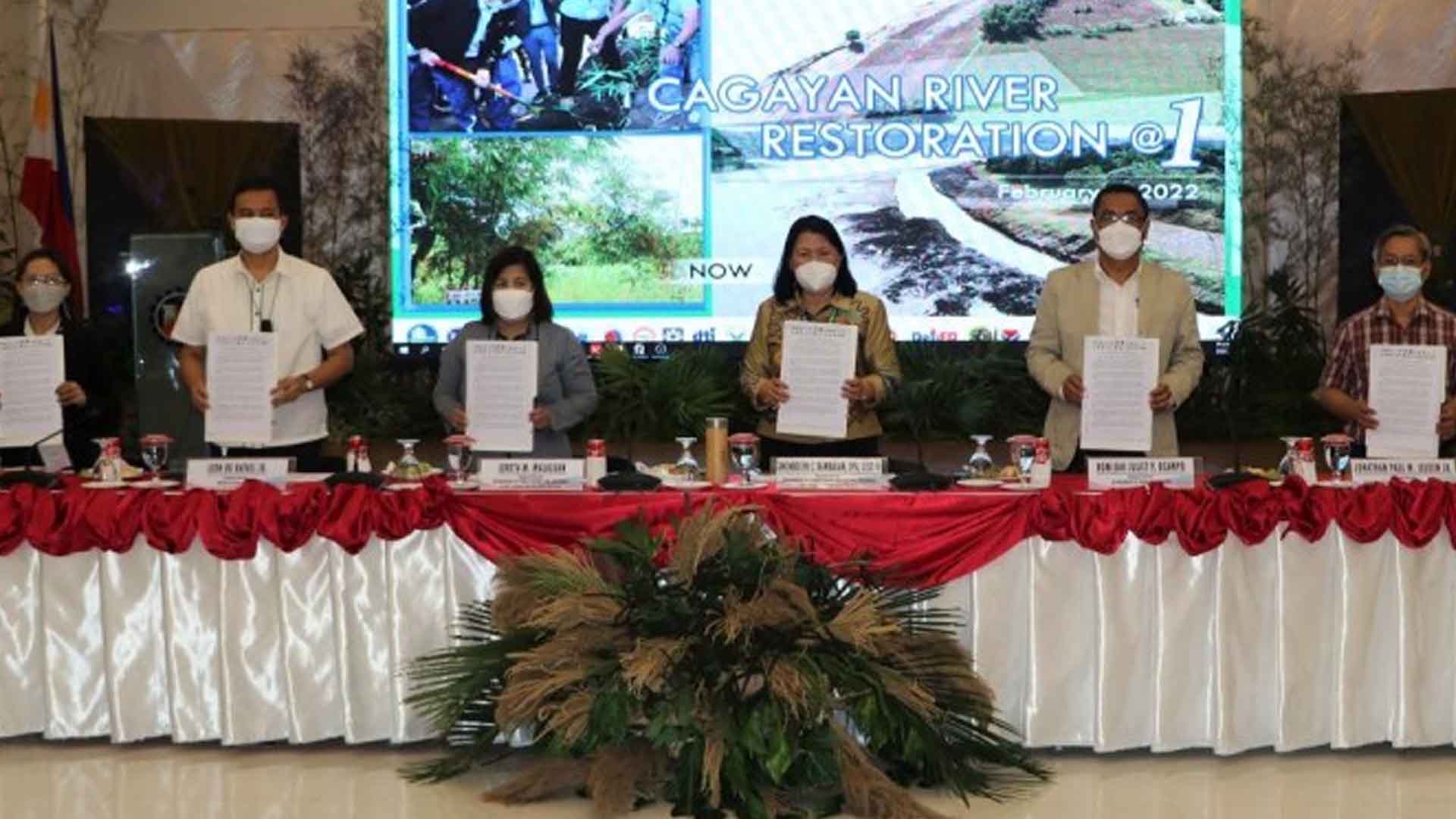To avoid future flooding of the “Ulysses” magnitude in Cagayan Valley, several government agencies under the Regional Build Back Better Task Force (RBBBTF) have agreed to continue their commitment and perform their responsibilities to sustain the rehabilitation of the Cagayan River.
On Thursday, officials of the Department of Environment and Natural Resources (DENR), Office of the Civil Defense (OCD), Department of the Interior and Local Government (DILG), Department of Human Settlements and Urban Development (DHSUD), Department of Trade and Industry (DTI), and Department of Public Works and Highways (DPWH), signed a memorandum of agreement (MOA) to “bring back a better Cagayan Valley; a community that is economically better, safe, and more climate-resilient”.
DENR Regional Executive Director Gwendolyn Bambalan and Regional Director Loreta Malaluan of the Department of Public Works and Highways (DPWH), task force chair and co-chair, respectively, led the signing along with DHSUD Regional Director Grace de Vera, OCD Regional Director Leon Rafael Jr., DILG Regional Director Jonathan Paul Leusen Jr., and DTI Assistant Regional Director Winston Singun.
“We vow to sustain the whole-of-government efforts to rehabilitate the river as we signed the joint memorandum of agreement by the Regional Build Back Better Task Force,” Bambalan told the Philippine News Agency during a briefing after the signing at the DPWH regional office here.
She said the DENR has allotted PHP56 million for the project this year.
“We have yet to see the priority of the next administration but we have projects in place and short-term priorities such as dredging, desilting, and river control projects are in place,” Bambalan added.
She noted the accomplishments under the project so far, saying sandbars were removed at the pilot site in Barangay Bangag, Lal-lo town, with a total of 374,000 cubic meters dredged last year.
Also, the DPWH is now removing the sandbars in Dummun village in Gattaran town.
These sandbars are priority sites for immediate dredging as they obstruct the flow of floodwater to the Aparri Delta and Babuyan Channel.
The task force has earlier identified 19 sandbars through the DPWH, covering a total of 275 hectares and an estimated volume of seven million cubic meters.
“You see now that at least we have deepened the sites, the water has been starting to directly flow to the Babuyan Channel,” Bambalan said.
To stabilize the riverbanks, a total of 585 hectares of land were planted with bamboos and indigenous species by the DENR and the local government in 14 municipalities where the Cagayan River and major tributaries are located.
Joining the event virtually, Environment Secretary Roy Cimatu lauded the regional leaders for their continued support of the project.
“Let us hope that what this administration has started to build back better the mighty Cagayan River will be built upon by the next administration,” he said as he cited the accomplishments of the lead agencies in the six key-result areas.
These areas are resilient infrastructure through management, dredging and desilting, and construction of structural measures for flood control; delineation of areas prone to climate-related hazards, relocation of affected families and construction of evacuation centers; provision of basic needs, medical services, electricity, road lines, sewers, telecommunication and transportation that can be mobilized during typhoons; sustainable livelihood programs; improved land-use planning and enforcement of Building Code; and intensive watershed management.
Bambalan also said the local government units have been instrumental in providing long-term solutions to the flooding problem.
Cagayan Valley region, particularly Cagayan province, was badly hit by Typhoon Ulysses in November 2020 and suffered extensive and destructive flooding that also claimed several lives. (PNA)







